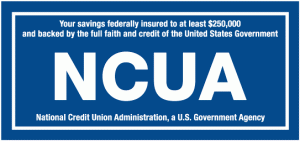Purchasing a new or used vehicle comes with a lot of stress, time and money. When purchasing a car at a dealership, there are secrets that you should know to make the process a whole lot easier, faster and cheaper.
Over the years, salespeople have had a reputation of putting pressure on customers to lure them with special offers, discounts and other benefits. While many car dealers have earned this bad reputation, some actually want to give customers a fair and good experience. Educate yourself with these tips that salespeople don’t want you to know…but we do!
Understand How Your Credit is Pulled by Dealers
Here’s the Facts:
*When Dealers pull your credit, it is a HARD pull.
*Hard pulls affect your credit score by lowering it: we’ve seen credit scores lowered by as much as 50 points.
*Dealers have relationships with several banking institutions who they deal with for financing your vehicle.
*Dealers tend to SHOP you around to their banking institutions and EACH bank will PULL your credit! Remember, this is a HARD pull.
*To avoid this, Evergreen Park Schools Federal Credit Union offers a preapproval on vehicle loans. Our credit pull is a SOFT pull which will NOT affect your credit score AND you will have more buying power when you step into the dealership.
*Tell the dealer NOT to pull your credit because you are not sure if you are buying a car today. Why?
*THIS NEXT ITEM IS EXTREMELY IMPORTANT: If you are preapproved with the credit union, DON’T TELL THEM. Instead tell them you will discuss financing after agreeing on a price. This gives the salesperson an opportunity to give you their best financing offer. If they know they’re not going to make any money on the car’s financing, their price for the vehicle may either be non-negotiable or even go up.
*Keep in mind that even though you are preapproved with the credit union, you are not obligated to take out the loan with the credit union. If the dealer offers you a better deal, we would appreciate the opportunity to match it. If we cannot, we will tell you so. No strings attached.
Get Your Own Financing.
This goes hand in hand with the previous paragraph. Shop around for your own financing whether it is with the credit union, your personal bank or the dealer. That way, you can take your time to find the best rate; not just what the dealer offers.
Know Your Credit Score.
If you will be financing your new car, your credit score and history will play a major role in the interest rate you receive. Before you start shopping, pull your credit reports directly from the three major credit bureaus: Equifax, Experian and TransUnion. (NOTE: your credit card statement may list a credit score but it is just an estimate of your actual score NOT the true score from the credit bureaus.)
Dealerships act as middlemen and when they make you a loan offer, they may mark up the rate you qualify for so that they will profit from the transaction. Knowing your actual credit score, will be your guide to the interest rate you should be receiving.
Buyers with low credit scores will be offered higher interest loan rates than buyers with good credit. You’re in a stronger position to negotiate when you can walk into a dealer and say: “My credit score is 750 and I should qualify for 5.00% financing” or whatever the going interest rate would be.
Conduct Your Research BEFORE You Head Out the Door
This is where the internet works to your benefit. Before making a purchase, research the vehicles you are considering. You will be equipped with critical information on the pricing as well as any rebates that may be available.
Shop the Manufacturer’s Website
By going directly to the manufacturer’s website, you could save money and hours. One way to get multiple quotes from dealers is to go directly to the car manufacturer’s website, choose the car you want and request quotes from dealers in your area. Since dealerships compete with one another, you may get the best price they offer without going through a painful negotiation process. Collect as many quotes as possible before heading out to the dealership and don’t be afraid to let them know what the other dealers offered.
Dealers will use your trade-in value to increase the price of the new car.
Keep your cards close to your chest when it comes to discussing your trade-in. Better yet, just don’t mention it. If your salesperson asks whether you’re trading in your old vehicle, simply tell them you aren’t planning on it. This might not be entirely accurate, but keeping the trade-in value of your car out of the negotiation can help you get a better deal on your car.
Once you have a firm price set on your car purchase, you can ask about trading in your car. Revealing this information too early in the negotiation process can lead to overblown prices for your new vehicle. Wait until you’ve settled on a price for the car before disclosing details about your trade-in. You will probably get offered less than wholesale value of your car, but this forces the salesperson to take the trade-in value right off the top of your set purchase price. This way, the dealership can’t use your trade-in value as a negotiation tool or manipulate the numbers and make you feel like you got a better deal on your new car.
Where You Negotiate Could Be Significant.
It is noted that car dealers are trained that they should negotiate at their desks. Why? Because psychologically, buyers may view the dealer behind the desk as being in control. This could lead you to pay more than you really want to. Instead, negotiate in a neutral place, such as outside on the lot next to the car you are considering.
“I’m Going to Pay Cash”
Financing is the way dealers make money. If you tell them that you won’t be taking out a loan, many may refuse to negotiate on the car’s price or raise the price to increase their profit. If they ask about how you plan to pay, whether it is with a trade-in, financing or cash, just say: “I’m undecided” and move on.
The Waiting Game.
Purchasing a car is one of the most stressful purchases a consumer will make. The dealer uses the “waiting game” to their benefit.
First the dealer may act busy to create a position of dominance by making you feel that their time is more valuable than yours. Second, waiting and spending a long time at the dealership will result in you feeling tired and overwhelmed. This allows the salesperson to influence your decision-making process and overwhelm you with several options – not necessary to benefit you. When you get in that state of mind, you’re more likely to settle instead of continuing to negotiate your best deal.
Be Cautious about Add-Ons.
Beware of any items that are added onto your invoice such as an extended service warranty, security system, paint protection or rust coating. These items are very profitable for the car dealership but probably won’t add any extra value to your car. If you are interested in any of these offers, know that these prices are negotiable.
Don’t Pay Full Invoice for Your Car.
Dealers get extra money from the automobile makers, such as incentives and rebates, which they can use to lower the price for you. They obviously won’t tell you about these extras unless you ask – these bonuses can save you a lot of money.
Get an “Out the Door” Price
Sometimes a dealer will offer you a low quote, only to add additional charges later that raise the bottom line. Always let the dealer know you want the final prices including taxes and fees associated with the new car. By doing so, you won’t waste time settling on a number only to be surprised by a much higher out the door price when it’s time to sign on the dotted line.
Year-End Deals.
Toward the end of the year, dealerships need to make room for the next year’s models. It is reported that December has the highest discount off MSRP as well as the highest incentives when compared to other months. If you can wait until then, it may be worth it.
Walk Away.
Be ready to walk away – even if this is the car of your dreams! Don’t ever let the dealer know this. Don’t lose sight of what you want to pay. You would be armed with your research so you will know the fair price of the vehicle. Don’t let salespeople intimidate or pressure you into buying the car. If so, walk away. Odds are they will either chase after you or will be calling you to see if you are still interested possibly at the price you want.
Give the Car a Good Inspection.
After you’ve negotiated the price and are set on the car, be sure to walk around the car to check for any scratches, dings or other issues. You can even do this after you’ve signed the contract and received the keys…but do this before you drive off the lot. You can schedule time with the dealer to get any issues repaired at no cost.
And lastly, some things to NEVER TELL your salesperson:
“I Love This Car”
This one seems obvious but as soon as you tell the dealer that you love the car, you have handed them the power to give you a deal that benefits them, not you. No matter how much in love you are with the car, keep your emotions in check. Some may even let you take the car home for a few days hoping you can’t give it up. Don’t do it! At any stage in the car-buying process, you need to be able to walk away. It’s harder to do when you’re in love with the car and good salespeople are aware of this.
“This is the Maximum I Can Afford to Pay Each Month”
If you say this out loud to the salesperson, be ready to pay the maximum you indicated. Some dealers will arrange the numbers so that you do pay the maximum you told them each month. They may do this by having you take out a very long-term loan so that you the payments match what you told them you can afford. These long-term loans are great for dealers because they rack up the interest costs making it a great deal for them and you end up paying a lot more because of this interest.
“I’ve Never Bought a New Car Before”
If you are a first-time car buyer, it is a good idea to take someone who has car buying knowledge with you. A family member or friend who you trust to give you good advice and help you see a good deal versus a bad one. Remember they are the ones who know you best and will have your best interest at heart; not the salesperson.
“My Current Car is on Its Last Leg”
By saying this, you are telling the salesperson two things: (1) you need to buy a car soon and may not have time to shop at other dealerships; and (2) if you are considering trading in that last leg car, you just gave them the key to offering you a lowball price on your trade-in.
“I Haven’t Talked to Any Other Dealers”
As in fishing, you need to cast a wide net in order to catch the best deal. Telling a dealer you are not talking to anyone else, lets them know they don’t have any competition. It also tells them that you may not be an experienced car shopper. Either way, the dealer now has a considerable advantage. The best advice is to be vague saying that you are still shopping around.
“I Don’t Know Much About Cars”
A good salesperson will want to help you find the right car for you. However, there are some who put their own interests over you. If you broadcast that you don’t know much about cars, they may try to sell you the car they want rather than the one that fits your needs and budget.
“My Lease is Almost Up”
When you admit this, you are basically giving the salesperson the advantage. You’ve just indicated that there is urgency because your lease is almost up and will need a car.
“I’m Going to Pay Cash”
Financing is the way dealers make money. If you tell them that you won’t be taking out a loan, many may refuse to negotiate on the car’s price or raise the price to increase their profit. If they ask about how you plan to pay, whether it is with a trade-in, financing or cash, just say: “I’m undecided” and move on.
By arming yourself with these insider secrets, you will be better equipped to navigate your car-buying process with confidence. Don’t let dealers’ maneuvers catch you off guard.



